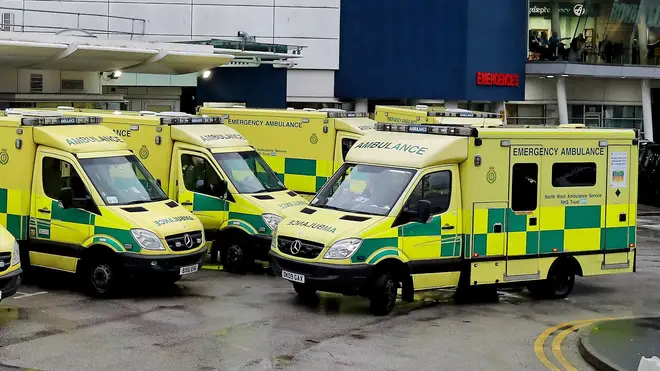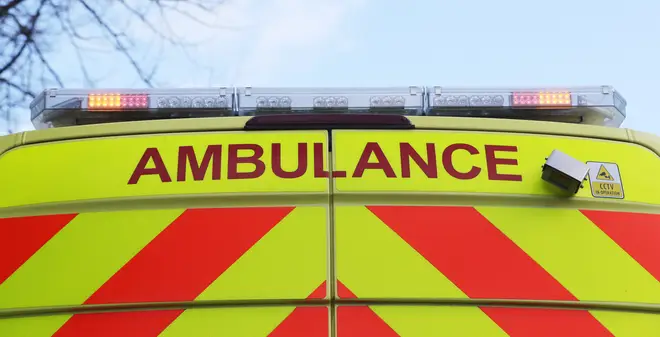
Ali Miraj 6pm - 9pm
27 August 2019, 17:46

The NHS is increasingly reliant on private ambulances to attend emergency calls, an investigation has revealed.
England's ambulance trusts spent more than £92 million on private services in the last year alone after being forced to resort them due to a chronic shortage of NHS staff and recruitment.
The figures have reignited fears that patients are being put "at risk" following a damning report by the Quality Care Commission which was published in March.
It found that some firms were failing to obtain references or carry out criminal records checks while a lack of staff training was leading to serious patient harm.
In one example, inspectors heard how a driver thought he could drive the wrong way down a one-way street if he had a blue light on.
In another, "an extremely confused dialysis patient was found wandering in the street" after crews failed to make sure he got into his home safely.
In some parts of the South, almost one in five emergency calls result in a private ambulance being sent to the scene
For the latest study, PA obtained data from the 10 ambulance trusts in England via the Freedom of Information Act.
It detailed how much they spent on private ambulances and taxis, and whether these were used for 999 calls or non-emergency patient transfers.
It showed the East of England Ambulance Service NHS Trust spent £9,535,027 on private ambulances for 999 and non-urgent work in 2018/19, double the £4,791,155 the year before.
Private ambulances were sent to 5.21% of all 999 incidents in 2018/19, up from 2.59% the year before.
Some 26,428 incidents in 2018/19 involved a private ambulance being required, up from 12,947 the year before.

The East of England Ambulance Service NHS Trust said it had hired hundreds of new staff but used private ambulances for overtime and spikes in demand, such as in winter.
It added: "It takes three years to qualify as a paramedic and we use private services to fill gaps in budgeted capacity whilst student paramedics complete their university studies and whilst we fill vacancies."
The data also showed that South Central Ambulance Service increased its spend on private ambulances for 999 calls.
In 2018/19, it spent £15,382,218, up from £12,994,544 the year before.
The number of 999 incidents attended to by private ambulances also rose, to 989,811 in 2018/19 from 917,521 the year before.
Private ambulances attended 17.69% of incidents following a 999 call in 2018/19, up from 16.19% the year before.
East Midlands Ambulance Service also increased its spend on private ambulances for 999 and non-urgent patient work.
In 2018/19, it spent £6,969,000, up on the £3,974,000 in 2017/18.
In 2017/18, 4.6% of all its 999 work was carried out by private ambulances (29,681 incidents).
But this rose in 2018/19 to 7.2% (48,686 incidents).
Meanwhile, the Yorkshire Ambulance Service increased its spend on private ambulances, to £4,906,384 in 2018/19, up from £3,343,771 the year before.
Private ambulances were used to respond to 3,606 calls to 999 in 2018/19 (0.48%), up from 2,511 the year before (0.35%).
West Midlands Ambulance Service, which recently lost its contract to supply non-emergency patient transport after the bid went to a private firm, spent nothing on private ambulances in 2018/19.
However, it doubled its spend on taxis to transport patients for non-urgent work, spending £4,082,556 in 2018/19, up from £2,028,745 the year before.
Shadow health secretary Jonathan Ashworth said: "Labour have longed warned against the risky, wasteful practice of privatising patient transport services.
"Matt Hancock promised 'no privatisation on his watch' and yet just in the last few weeks another patient transport service in Worcestershire was privatised, leaving staff in tears and fearing for their jobs.
"Patients are utterly fed up of profiteering companies like this taking our NHS for a ride.
"Labour will end the Tory privatisation racket and put patients, not profit, first."